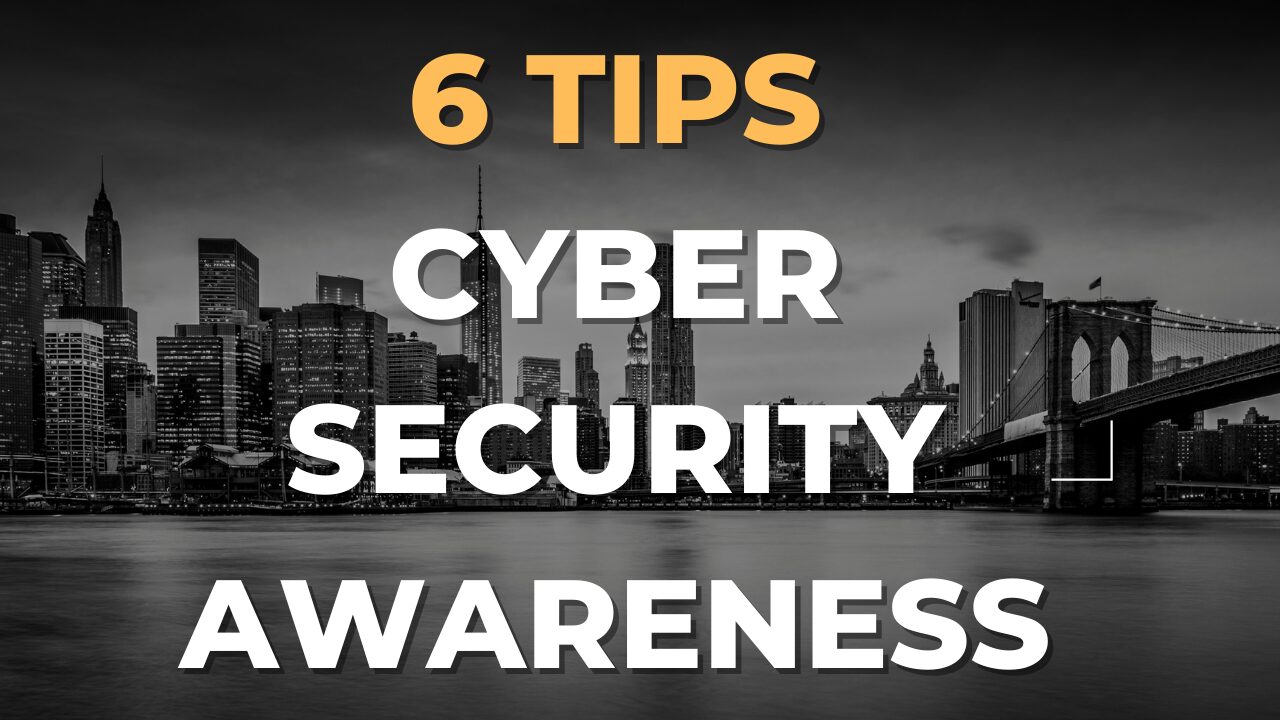Florida Cybersecurity Act Gets Updated as of July 1, 2022
If you’re a business owner, government agency, or individual in Florida, it’s essential to understand the Florida Cybersecurity Act. This act applies to state, county, and municipal governments, departments, and agencies throughout Florida, and it was updated on July 1, 2022. The act outlines specific guidelines businesses, and government agencies must follow to protect sensitive information from cyber attacks.
The Florida Cybersecurity Act is designed to provide a framework for protecting sensitive data from cyber threats. The act requires businesses and government agencies to implement specific cybersecurity measures to safeguard personal information, including social security numbers, driver’s license numbers, and financial account information. Failure to comply with the act’s guidelines can result in significant penalties, making it crucial for businesses and government agencies to take cybersecurity seriously.
Key Takeaways
- The Florida Cybersecurity Act applies to state, county, and municipal governments, departments, and agencies throughout Florida.
- The act was updated on July 1, 2022, and outlines specific guidelines businesses and government agencies must follow to protect sensitive information from cyber attacks.
- Failure to comply with the act’s guidelines can result in significant penalties, making it crucial for businesses and government agencies to take cybersecurity seriously.
Background of Florida Cybersecurity Act
The Florida Cybersecurity Act was first introduced in 2019, but it was updated on July 1, 2022, to provide more comprehensive protection against cyber threats. This act addressed the increasing number of cyber-attacks on Florida’s government agencies and critical infrastructure.
The act requires all state agencies to implement specific cybersecurity measures to protect sensitive information from unauthorized access, theft, or destruction. The act also requires state agencies to report cybersecurity incidents to the Florida Department of Law Enforcement within 24 hours of discovery.
The Florida Cybersecurity Act establishes the Florida Cybersecurity Task Force, which provides recommendations to state agencies on improving their cybersecurity posture. The task force comprises industry experts, government officials, and academic professionals who work together to identify potential threats and develop strategies to mitigate them.
The act also requires state agencies to conduct regular risk assessments and implement appropriate security controls to protect against cyber threats. Additionally, the act provides funding for cybersecurity training programs to educate state employees on identifying and responding to cyber threats.
Overall, the Florida Cybersecurity Act is a critical step towards improving the state’s cybersecurity posture and protecting against cyber threats. The state can better protect its critical infrastructure and sensitive information from cybercriminals by implementing comprehensive cybersecurity measures and establishing the Florida Cybersecurity Task Force.
Updates Made on July 1, 2022
The Florida Cybersecurity Act was updated on July 1, 2022, with several changes impacting businesses and organizations operating in the state. Here are some of the key updates:
New Cybersecurity Standards
The updated Florida Cybersecurity Act includes new cybersecurity standards businesses must adhere to. The standards are designed to protect against cyber threats and keep sensitive information secure. The new standards cover a range of areas, including:
- Access controls
- Data encryption
- Incident response
- Network security
- Security awareness training
To avoid penalties and potential legal action, businesses must ensure that their cybersecurity measures meet these new standards.
Strengthened Data Breach Notification Requirements
The updated Florida Cybersecurity Act also includes strengthened data breach notification requirements. Businesses must notify affected individuals of a breach within 30 days of discovering the breach. In addition, businesses must provide free credit monitoring services to affected individuals for at least 12 months.
Increased Penalties for Non-Compliance
The updated Florida Cybersecurity Act includes increased penalties for non-compliance. Businesses that fail to comply with the new cybersecurity standards or data breach notification requirements may face fines of up to $500,000 per violation. In addition, businesses may be subject to legal action by affected individuals.
Conclusion
The Florida Cybersecurity Act updates reflect cybersecurity’s growing importance in today’s digital landscape. Businesses must take the necessary steps to protect against cyber threats and secure sensitive information. By adhering to the new cybersecurity standards and data breach notification requirements, businesses can avoid penalties and legal action while maintaining the trust of their customers and clients.
Implications for Businesses
Suppose you are a business owner or manager operating in Florida. In that case, it is important to be aware of the implications of the Florida Cybersecurity Act (Florida H.B. 1297), updated on July 1, 2022. The Act aims to enhance cybersecurity measures and protect sensitive information.
One of the key implications for businesses is the requirement to implement reasonable cybersecurity measures to safeguard personal information. This includes risk assessments, employee training, and regular system updates. Failure to comply with these requirements can result in penalties and fines.
Another important implication is the notification requirement in a data breach. Businesses are required to notify affected individuals within 30 days of discovering a breach. Failure to do so can result in severe penalties and damage to your business’s reputation.
The Act also requires businesses to enter into contracts with third-party service providers handling personal information. These contracts must include specific provisions related to cybersecurity and data breach notification.
Overall, the Florida Cybersecurity Act represents a significant step towards protecting personal information and enhancing cybersecurity measures in the state. As a business owner or manager, ensuring that your organization complies with the Act’s requirements to avoid penalties and protect your customers’ sensitive information is important.
Implications for Government Agencies
The Florida Cybersecurity Act, updated on July 1, 2022, has significant implications for government agencies. The Act requires all state agencies to implement and maintain a comprehensive cybersecurity program to protect against cyber threats.
Under the Act, government agencies must conduct annual risk assessments to identify potential vulnerabilities and implement appropriate security measures to mitigate the risks. Additionally, agencies must establish incident response plans and procedures to ensure they can respond effectively to cyber incidents.
The Act also requires government agencies to provide cybersecurity training to all employees with sensitive data access. This training must cover password management, phishing awareness, and safe browsing practices.
To ensure compliance with the Act, the Florida Department of Management Services (DMS) has been tasked with overseeing the implementation of the cybersecurity program across all state agencies. The DMS will conduct audits and assessments to evaluate agency compliance with the Act and provide guidance and support to agencies as needed.
The Florida Cybersecurity Act represents a significant step forward in protecting government agencies against cyber threats. By requiring agencies to implement comprehensive cybersecurity programs and providing oversight and support, the Act will help to ensure that sensitive data is protected and that government services remain available to the public.
Implications for Individuals
If you reside or conduct business in Florida, the updated Cybersecurity Act of 2022 has significant implications for you. The Act mandates that certain entities, including state agencies, local governments, and businesses, adopt specific cybersecurity measures to safeguard sensitive information.
As an individual, you may be required to provide personal information to these entities, such as your name, address, and social security number. The updated Act requires that these entities take reasonable measures to protect your sensitive information from unauthorized access, use, or disclosure. Failure to comply with these requirements could result in significant fines and legal action.
To protect your personal information, it is essential to be vigilant and take proactive steps to safeguard your data. Here are some best practices to keep in mind:
- Be cautious when sharing personal information online, and only provide it to reputable and trustworthy sources.
- Use strong, unique passwords for all your accounts and enable two-factor authentication where possible.
- Keep your software and operating systems up to date with the latest security patches and updates.
- Regularly monitor your financial accounts and credit reports for any suspicious activity.
- If you suspect your personal information has been compromised, report it immediately to the appropriate authorities.
Following these best practices and staying informed about the updated Cybersecurity Act can help protect your sensitive information and minimize the risk of identity theft or other cybercrimes.
Compliance Guidelines
To ensure compliance with the Florida Cybersecurity Act updated July 1, 2022, it is important to implement appropriate data protection measures and incident reporting procedures. Failure to comply with these regulations can result in serious consequences, including fines and legal action.
Data Protection Measures
To protect sensitive information from unauthorized access, it is important to implement the following data protection measures:
- Encryption: Ensure that all sensitive data is encrypted in transit and at rest.
- Access Controls: Limit access to sensitive data to only those who need it to perform their duties.
- Password Policies: Enforce password policies that require strong passwords and regular password changes.
- Network Security: Implement firewalls, intrusion detection systems, and other security measures to protect against cyber threats.
By implementing these data protection measures, you can reduce the risk of data breaches and protect sensitive information’s confidentiality, integrity, and availability.
Incident Reporting Procedures
In the event of a cyber incident, it is important to have a clear and effective incident reporting procedure in place. This will help minimize the incident’s impact and facilitate a timely response. The following steps should be included in your incident reporting procedure:
- Identify the Incident: Determine the nature and scope of the incident.
- Contain the Incident: Take immediate action to contain the incident and prevent further damage.
- Notify the Appropriate Parties: Notify the appropriate parties, including your IT department, management, and law enforcement if necessary.
- Investigate the Incident: Conduct a thorough investigation to determine the cause and extent of the damage.
- Remediate the Incident: Take appropriate action to remediate the incident, including restoring data and systems and implementing measures to prevent similar incidents from occurring.
By following these incident reporting procedures, you can minimize the impact of cyber incidents and ensure that appropriate action is taken to protect sensitive information.
Remember, compliance with the Florida Cybersecurity Act, updated July 1, 2022, is essential to protect sensitive information and avoid legal consequences. Implementing appropriate data protection measures and incident reporting procedures is crucial to achieving compliance and protecting your organization from cyber threats.
Penalties for Non-Compliance
You may face penalties if your organization fails to comply with the Florida Cybersecurity Act. The specific penalties depend on the severity of the violation and whether it was intentional or unintentional.
Civil Penalties
If your organization unintentionally violates the Florida Cybersecurity Act, you may face a civil penalty of up to $25,000 per violation. If the violation is intentional, the civil penalty can increase up to $50,000 per violation.
Criminal Penalties
You may face criminal charges if your organization knowingly and intentionally violates the Florida Cybersecurity Act. The penalties for criminal charges include fines and imprisonment.
Other Consequences
In addition to the penalties mentioned above, non-compliance has other consequences. These include damage to your organization’s reputation, loss of customers, and potential lawsuits.
Taking the Florida Cybersecurity Act seriously is important, and ensuring your organization complies. This can help prevent penalties and other negative consequences.
Future Predictions
The Florida Cybersecurity Act has been updated to protect businesses and individuals against cyber threats. With the increasing number of cyber attacks, staying ahead of the game and preparing for the future is important.
One prediction is that there will be an increase in the use of artificial intelligence (AI) in cyber attacks. Hackers will use AI to launch more sophisticated attacks that bypass traditional security measures. This means that businesses and individuals need to invest in AI-based security solutions to protect themselves.
Another prediction is that the Internet of Things (IoT) will continue to grow, and the number of connected devices will increase. This will create more entry points for hackers to exploit. Businesses and individuals must secure all their devices and ensure they are regularly updated with the latest security patches.
In addition, there will be a greater focus on data privacy and protection. With increasing personal data being collected and stored, businesses need to implement strong data protection policies and utilize encryption technologies to keep sensitive information safe.
Overall, the future of cybersecurity is unpredictable, but businesses and individuals must stay vigilant and proactive in protecting themselves from cyber threats. The Florida Cybersecurity Act is a step in the right direction, but staying informed and up-to-date with the latest security trends and technologies is important.









